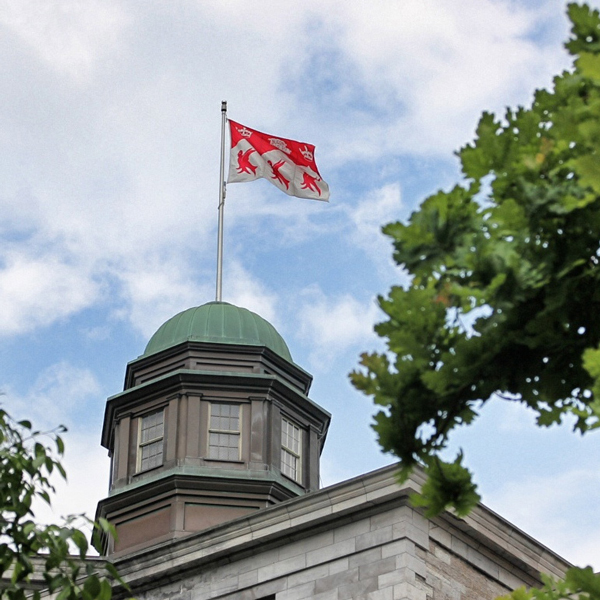McGill’s Board of Governors approved the budget for Fiscal Year 2017 on Thursday, April 21, following a presentation by Provost and Vice-Principal (Academic) Christopher Manfredi, who had made a similar presentation the day before at Senate.
While the University will continue to run a deficit, the anticipated $2.7-million shortfall for Fiscal Year 2017 is considerably less than an earlier projection of close to $10 million. This is largely because the Quebec government has stopped cutting its spending on universities, Manfredi told Senate, noting that McGill is now reaping the benefits of the tough decisions it made in recent years when severe cuts were frequent and sometimes unexpected.
“The last Quebec budget was a stabilizing budget, not a windfall budget,” he told the Board, noting that within a few years, McGill should be able to look at a budget that is more or less balanced. In the meantime, McGill’s deficit will remain below 1 per cent of operating revenues.
The result is that McGill will be able to proceed with a number of important academic initiatives, including providing new resources to support a new policy on sexual assault, which is being examined by the senior administration with an eye to having the policy in place by the end of the calendar year. The policy’s foundation was laid down over the last two years by a student working group representing a number of campus groups involved with issues of sexual assault.
Other academic initiatives include the following, Manfredi told Senate:
- Academic renewal: while the pace of the net growth of McGill’s Tenure Track complement of professors has slowed to ease budgetary pressures, growth remains the goal and a new “provostial complement” will facilitate strategic hiring, which will result in $1.6 million in savings for Faculties.
- Indigenous Studies and Aboriginal Education: McGill will maintain a multi-year commitment to review the University’s capacity for teaching and research on Indigenous interests and improving the recruitment and retention of Aboriginal faculty and students. The University will launch a Provost’s Task Force on Aboriginal Education. “If McGill is going to make a difference in this area, we’ll have to put resources behind it,” Manfredi told both Board and Senate.
- School of Public Policy: A $10-million commitment over the next 10 years from the Max Bell Foundation will help allow McGill to proceed with the development of a Masters program in Public Policy and and Executive Masters program. The school is expected to open in the fall of 2017, with the first students to be accepted in 2018.
- Sustainability Science: McGill will commit $2 million annually for five years to support research in sustainability.
- CFREF (Canada First in Research Excellence Fund) in Neurosciences: The results of the latest competition for a multi-million, seven-year grant for major projects are expected June 2016.
- Internationalization initiatives: The University has expanded and accelerated approach to establishing McGill’s international presence and increasing opportunities for faculty and student mobility.
In addition, Manfredi told Senate he will be bringing forward more rigourous academic leadership training for new administrators and increased measures for equity training for search committees, as well as appointing additional harassment advisors.

